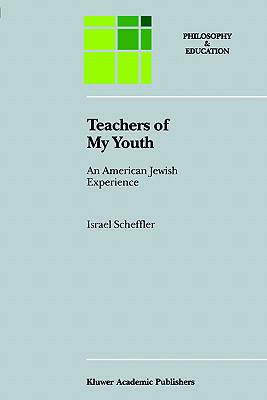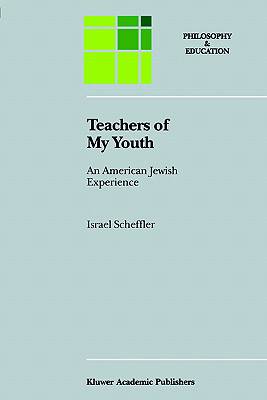
- Afhalen na 1 uur in een winkel met voorraad
- Gratis thuislevering in België vanaf € 30
- Ruim aanbod met 7 miljoen producten
- Afhalen na 1 uur in een winkel met voorraad
- Gratis thuislevering in België vanaf € 30
- Ruim aanbod met 7 miljoen producten
Zoeken
€ 116,95
+ 233 punten
Uitvoering
Omschrijving
Having spent forty years teaching education and philosophy at Harvard, and publishing widely on these topics during this period, Israel Scheffler has now written a more personal book, looking at education through the prism of his own early experience, primarily of religious learning.
The book consists mainly of portraits of his early teachers, most of whom belonged to a transitional generation of immigrant Hebrew scholars -- unsung heroes of Jewish education on the American scene. Through the medium of such portraits of teaching personalities and styles, as well as firsthand descriptions of various educational settings in the New York City of the 30s and 40s, he comments on aspects of immigrant life, the tensions between religious and secular worlds, the psychology of learning and teaching, the relations between universalism and particularism, the contrasts between intensive education and instrumental schooling, and related themes. These themes, although exemplified in the details of his own experience, are of quite general significance.
The book will be of special interest for those concerned with Jewish life, with religious education, with the immigrant experience and with the recent American past.
The book consists mainly of portraits of his early teachers, most of whom belonged to a transitional generation of immigrant Hebrew scholars -- unsung heroes of Jewish education on the American scene. Through the medium of such portraits of teaching personalities and styles, as well as firsthand descriptions of various educational settings in the New York City of the 30s and 40s, he comments on aspects of immigrant life, the tensions between religious and secular worlds, the psychology of learning and teaching, the relations between universalism and particularism, the contrasts between intensive education and instrumental schooling, and related themes. These themes, although exemplified in the details of his own experience, are of quite general significance.
The book will be of special interest for those concerned with Jewish life, with religious education, with the immigrant experience and with the recent American past.
Specificaties
Betrokkenen
- Auteur(s):
- Uitgeverij:
Inhoud
- Aantal bladzijden:
- 208
- Taal:
- Engels
- Reeks:
- Reeksnummer:
- nr. 5
Eigenschappen
- Productcode (EAN):
- 9780792332367
- Verschijningsdatum:
- 31/12/1994
- Uitvoering:
- Paperback
- Formaat:
- Trade paperback (VS)
- Afmetingen:
- 156 mm x 234 mm
- Gewicht:
- 312 g

Alleen bij Standaard Boekhandel
+ 233 punten op je klantenkaart van Standaard Boekhandel
Beoordelingen
We publiceren alleen reviews die voldoen aan de voorwaarden voor reviews. Bekijk onze voorwaarden voor reviews.











